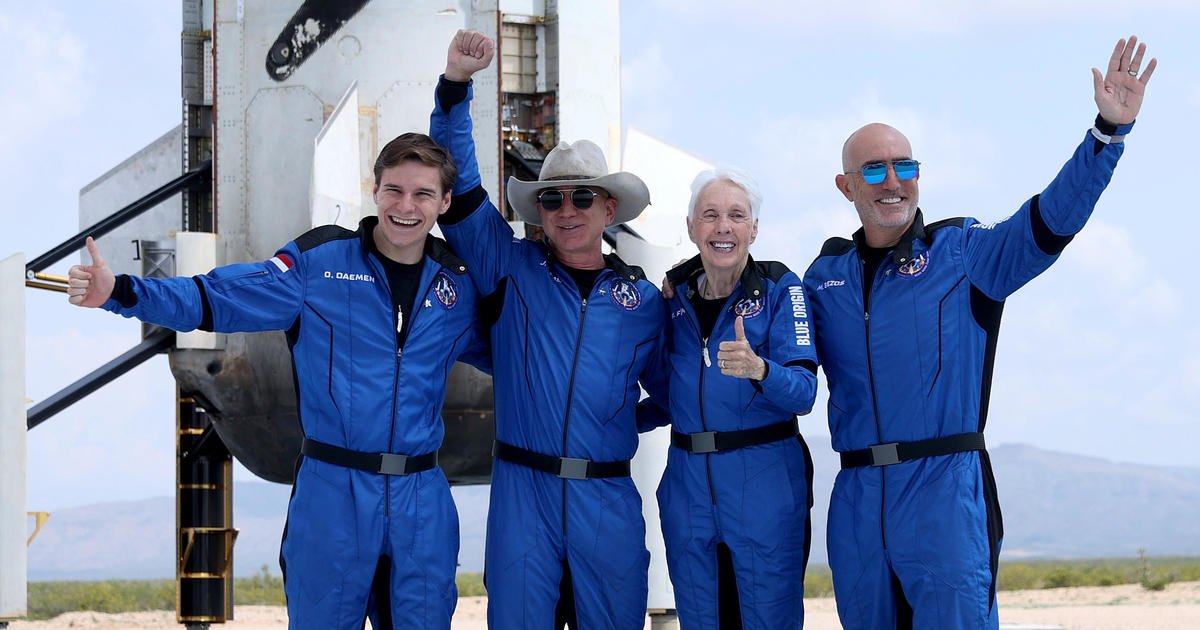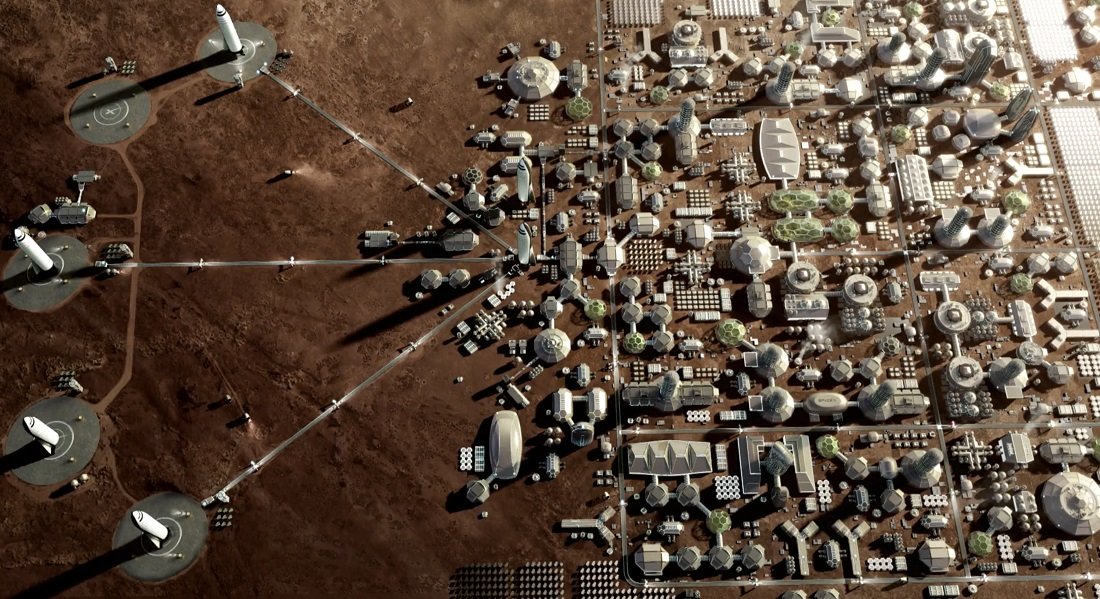While space is mostly empty, it contains broken promises and unfulfilled dreams in plentiful amounts.
High on the first successful Moon landing of 1969, NASA planned to send humans onwards to Mars in 1982. Contemporary pop culture imagined lunar cities by the 1990s, and Stanley Kubrick certainly thought it feasible that we’d be flying to Jupiter in 2001.
But we haven’t set foot on the Moon for fifty years, only robots have been to Mars, and journeys to the outer solar system remain firmly science fiction. Government-funded space exploration is limited to obscure experimentation that most people don’t understand. Now it takes singing astronauts and UFO conspiracy theories to spark even fleeting interest in the cosmos.
Disappointed by the rate of progress, the tycoons of the tech and aviation worlds—children of the Apollo era—have begun a new ‘space renaissance’. With a passion for space, plans for its exploration, and the chequebooks to make it happen, they have advanced rocketry and related technology further in the last ten years than all the world’s space agencies in half a century.
Billionaire space race
The summer of 2021 was a summer of firsts. Richard Branson’s Virgin Galactic Unity space plane kicked it off in July with its first successful ‘space tourism’ flight, and the man himself was on board to take in the view. Erstwhile Amazon CEO Jeff Bezos followed two weeks later with the launch of Blue Origin’s New Shepard. Elon Musk’s SpaceX completed three launches, including the first ever entirely civilian-crewed spaceflight.
Mainstream media outlets watched the launches with disinterest, even bemusement—but they certainly didn’t miss the multibillion-dollar fortunes making them happen.
‘Billionaire Bezos has successful suborbital jaunt’, reported Reuters. ‘The billionaire space race lifts off,’ said NPR. A widely reported Morgan Stanley forecast threw an extra three zeros into the mix: ‘SpaceX could make Elon Musk world’s first trillionaire.’
None of this is untrue, of course. All three men are incredibly wealthy, and space stands to make them wealthier still. For someone struggling to pay the rent, impacted by Covid, or concerned about the environment, these events may indeed look frivolous.
After all, what did they really achieve? Virgin Galactic sent Branson and a few others on a 40-minute journey to a height many astronomers will tell you technically isn’t even space. Bezos’s New Shepard rocket is little more than a suborbital theme park ride: passengers blast off from Earth, enjoy three minutes of weightlessness, then parachute back down.
A space industry PR rep would argue that they’re working with what they have. These flights are essentially tests, pitches even, a teaser of what’s to come.
How do you draw the eye of venture capitalists and eager suborbital tourists with $300,000 to burn? You send a nonagenarian William Shatner into space (for real, this time), launch a car into Martian orbit, and raise $200 million for a children’s cancer hospital. But whether this captures the imagination of the anxious everyman is debatable.

Cities in space
Indeed, what media coverage and public opinion suggest is that the new space tycoons have yet to really sell their vision for life beyond Earth. The irony is that all three companies are sitting on some incredibly interesting stories and ambitious visions that could have transformative long-term benefits for humanity and the planet. These are ripe for development and integration into topical issues and debates.
Branson’s goals are mostly terrestrial. While Virgin Galactic is for now primarily a ‘space tourism’ company, it plans to use its space plane technology to drastically reduce flight times here on Earth, cutting a London–New York trip to just 2 hours, leading to carbon emission reduction in the aviation industry.
Bezos and Musk have their eyes on the wider cosmos. Blue Origin sees itself as an infrastructure provider, the builder of ‘the road to space’ so ‘our children can build the future’. It’s currently working on the first mixed-use commercial space station, Orbital Reef, to conduct new scientific, medical, and industrial research. Bezos imagines ‘millions of people’ living and working in space this century, removing population pressure from Earth.
SpaceX wants to make humanity a ‘multiplanetary species’. Musk’s company plans to put the first man and woman on Mars by 2026, establish a self-sustaining Martian city by 2050, and for that city to reach a population of one million by the early twenty-second century, thereby assuring humanity’s survival should a catastrophic disaster ever occur on this planet.
The Earth problem
But the biggest obstacle in the way of space exploration isn’t just public perception: it’s Earth. World leaders, activists, and celebrities from 200 countries are currently gathered in Glasgow for the UN COP26 conference. By 2030, they promise, deforestation will be a thing of the past and methane emissions reduced by 30%.
Rocket launches are a very dirty business. The NASA Space Shuttle’s two solid rocket boosters consumed almost 5 tonnes of fuel per second, two million times the rate of fuel consumption of a family car. It will be a long time before space companies turn their focus away from simply launching rockets safely and reliably towards clean energy.
This is a reality these companies need to own and offset elsewhere. Musk, at least, can claim to be doing some serious work in the sustainability space: he owns Tesla, which manufactures electric cars, and Tesla Energy, which produces domestic solar panels and ‘solar roofs’. He is also an advocate for corporate carbon taxes.
Bezos’s Blue Origin says its primary goal is to ‘find new energy and material resources and move industries that stress Earth into space’—in other words, move the smokestacks somewhere emissions don’t matter. It’s a long-term ambition, but Blue Origin needs to start communicating it now so that off-planet industry can enter the sustainability narrative as a potential solution.

Selling space
While space is mostly empty, it’s also full of potential. It contains valuable resources needed to power future clean energy sources. It can help end polluting industry on Earth. It could provide jobs for millions in a new multiplanetary economy. It could even save humanity from extinction.
The danger for the likes of SpaceX and Blue Origin is the public’s fixation on the private wealth of their CEOs: it distracts from the bigger picture. While aerospace fans and industry experts will see small-scale launches and space tourism as important milestones on the path to a much greater end, the average person will see them as wasteful and pointless.
The new space titans have plenty of stories to tell—they just need to communicate them in a way that resonates, showing the world how we all benefit from exploring the solar system.

About the author
Declan is 360’s primary content creator, responsible for strategising, managing, and writing editorial campaigns for our client portfolio. He ghostwrites opinion editorials for C-level leadership and edits and publishes 360’s Full Circle magazine. Previously, Declan freelanced as a journalist and voiceover.
